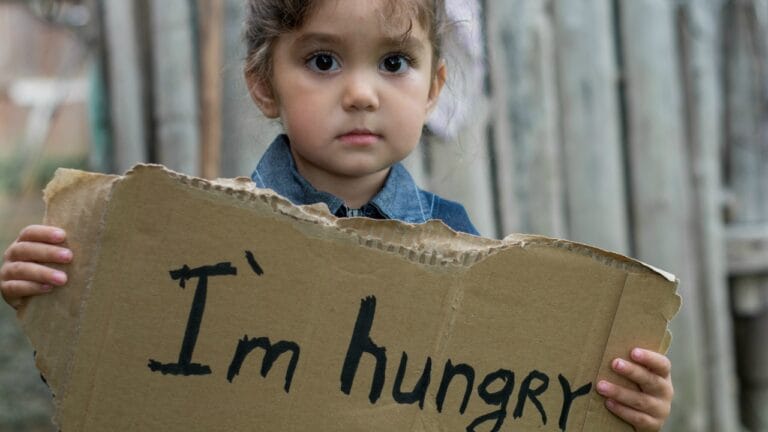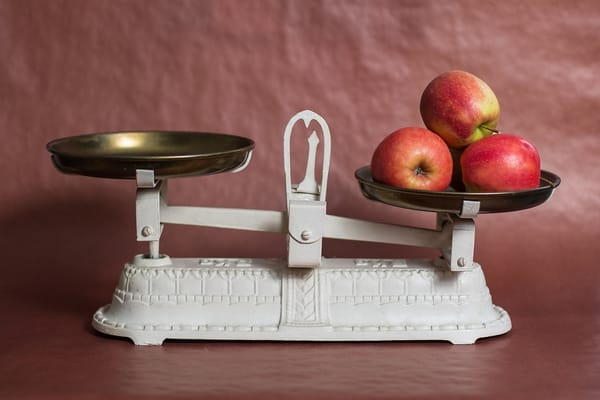The British poverty trap
A tale of two caps

There is a push to remove the two child benefit cap because it could lift a lot of children out of poverty. Except it may well not.
I don't have the time or the expertise to go into this in any great detail, but I will outline how it works.
The war on the vulnerable - cap 1
Way back in the distant mists of time (2013) there was a made up panic around how some people on benefits may receive more money than a family on average income. We (whoever that is) should not pay for them (the people we just decided to pretend to be our enemies). This meant that the coalition government introduced a regulation that put an upper limit on the amount of benefits a household could receive based on the average income (in 2013). The amount was reduced in 2016.
This was dressed up by Iain Duncan-Smith (a figure well loved by no decent person) as a way to force people into work, because if you could show you were working the cap did not apply to you. He was gleeful after various court rulings upheld the law, even though one of the judges said it was probably in breach of the UN human rights charter. The public (whoever they are) supported the measures - probably because they had no idea what misery it meant in practice. This is one of the problems with political cant, often the headline (say reducing dependency or some addled version of fairness) hides a much darker intent, in this case saving a few pennies and terrorising people who can't fight back while feeding your constituency's need to hate someone less fortunate than they are. Duncan Smith's legacy is starving children.
Quoting from the Wikipedia article on the cap:
Statistics published by the Department for Work and Pensions (DWP) indicated that by 2018, 70% of the households that had been subject to the cap were no longer subject to it, amounting to 54,000 households. In that year independent research was published examining 10,000 benefit-capped households. It estimated that the policy had increased the likelihood of moving into work by 21%. However, only 37% of those no longer subject to the cap had become so due to a higher income. For every child affected by the cap whose parents had moved back into work, eight others were living in worse financial circumstances. Over half of those households subject to the cap remained so for six months or more, and two-thirds of those experienced a shortfall between their monthly income and estimated costs. Overall the average gap between rent and housing benefit for families affected by the cap was £3,750 a year. A study of council tenants in England affected by the cap indicated that they were two-thirds more likely to be in rent arrears than other tenants claiming housing benefits, and that 28% of all households affected by the cap were receiving a discretionary housing payment.17(https://en.wikipedia.org/wiki/Benefit_cap#cite_note-17)
Analysis of DWP figures published in November 2018 carried out by the Labour Party indicated that single women with one or more dependent children made up over 85% of the householders who had their benefits capped (114,337 of the total 134,044). Overall 120,297 single claimant women had their benefits capped, compared with 13,743 single claimant men.18(https://en.wikipedia.org/wiki/Benefit_cap#cite_note-18)
The people who are the poorest are the hardest hit, children are being penalised through no fault of their own, and a side effect of this is women with younger children fleeing domestic abuse are disproportionately affected. A penny-pinching Tory wet dream dressed up as a way of helping people into work.
Because the figure has hardly moved in the last ten years it means that more and more of the most vulnerable are affected by it as inflation impoverishes us. For example in the domestic violence scenario above a single mother with a couple of young kids will receive a small but probably enough amount in benefits that will pay for food. In a talk I recently attended about the cap the speaker pointed out that adding in housing costs means that there will simply not be enough to pay for somewhere decent to live. Even in the cheapest place in the country to live (Hull) the family will be short by several hundred pounds. To restate what it said above: Overall the average gap between rent and housing benefit for families affected by the cap was £3,750 a year. This figure is probably quite out of date now, and is an enormous sum for a poor family to lose.
The two child cap (2)
The two-child cap was a policy that was announced in 2015 and bars parents from claiming child tax credit or universal credit for any third or subsequent child born after April 2017.
This is the cap that a great number of people have recently been campaigning to remove. But removing it on its own it may make no difference. It's also Tory eugenics dressed up with a characteristic Osbourne simper.
Consequences
The families affected by both these measures are the poorest and most vulnerable families in the country. In some cases their inability to pay rent traps them in temporary accommodation (which I believe is funded by local councils) because they can't afford to leave it. The recent hyper inflation of food and housing has only made their desperation more acute.
On paper lifting the two child cap means that more money will be made available to families that need it. This is a great thing, in theory. Despite this, if they are caught by the benefits cap means it won't make any practical difference for many of them. The proportion of money filled by benefits, and that by housing benefit will change, but the already inadequate total resources they have to live on will be the same.
So we must campaign to get rid of both of these caps, they are a legacy of Tory austerity and need to be gone. It's obscene that children and their parents are doing without food, heat and shelter in one of the richest countries in the world. It's appalling that families are trapped in emergency accommodation because they can't afford to get a decent place to live. The situation is wrong all the way down and we must not allow divisive policies to make things even worse.




